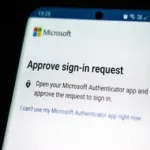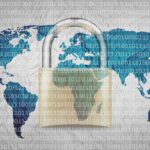How VPN Enhances Security? One quick way to test if a VPN is reliable is by checking your current IP address, connecting to the VPN server, and rechecking the IP address. If the new IP address differs from the original one, you can confirm that the VPN application is working properly.
Can VPNs access my passwords? What kind of data is visible to VPN services?

VPNs are used to safeguard the traffic from being intercepted and surveilled, especially by the state. Clients rely on them to protect their most sensitive information such as login credentials, passwords for websites, banking details, and confidential correspondence, protecting privacy. Consequently, issues related to privacy are of utmost importance. It is essential to understand what kind of information is accessible to VPN services and what remains hidden from them and protects privacy.

Readers like you help support TIPDIGITECH. When you make a purchase using links on our site, we may earn an affiliate commission. Read More.
What does the VPN service see?
VPN services “see” the same as your Internet provider:
List of visited sites.
These are domain and IP addresses, as well as time of visit. In this case, the VPN “sees” only the site being opened, and not the pages on it.
Your actual IP address.
Digital profile of the device from which you access the Internet. Model installed operating system and system language. However, it should be noted that this is only known if you are using the VPN service application, and not the OpenVPN or WireGuard application.
When you use a VPN, it acts like a provider, similar to a postal service. Just like Post employees can see the envelope, know where it’s coming from, and weigh it, but can’t know what’s inside, a VPN service also works in the same way. It can see the traffic packets and understand their origin and destination, but it cannot access or understand the contents inside those packets.
What the VPN service doesn’t see?
Please note that VPN services cannot access the most valuable information that you send over the network. This includes your passwords, bank card details, and messages in instant messengers.
When you enter your passwords on websites, they are not sent over the network in clear text. Reputable websites use browser-based hashing to encrypt passwords, which they then send to the server for comparison.
Additionally, SSL/HTTPS encryption is used to transfer logins and passwords, further protecting your confidential information from interception. Similarly, when you pay online, a secure HTTPS connection is established, which encrypts the traffic to protect against interception.
Therefore, VPN services will not see your bank card number, expiration date, and CVC code. Finally, instant messengers encrypt messages before sending and decrypt them upon receipt, ensuring that your sensitive information remains private regardless of which VPN service you use.
What does a VPN protect against then?
If a VPN can see the list of sites you visit, and site developers can “forget” to add encryption for passwords, then the question arises – what does the VPN itself protect against?
VPN Protects Privacy? Using a VPN can protect you against man-in-the-middle hacking attacks where someone intercepts and decrypts your internet traffic. Such attacks can be carried out by attackers, scammers, or even the state, which may monitor and censor information. When you connect to a VPN, all your internet traffic becomes encrypted, making it impossible for anyone to intercept and read the information you send over the internet. Moreover, a VPN adds an extra layer of privacy to your internet use. The VPN provider cannot observe which websites you visit, and they won’t share that data with advertisers or government agencies. Similarly, the administration of the sites you visit won’t be able to see your IP address or location.
Can you trust a VPN?
To keep your personal information private, it’s important to use services that do not keep logs of your online activities. For instance, you could consider using a VPN such as the one available at the following link: How VPN Helps? VPN should not record, collect or store any information about your browsing history or online activities.
By choosing a VPN that does not log your traffic, you can ensure that your sensitive information such as passwords and bank card details will remain confidential and known only to you. Therefore, it’s crucial to opt for a VPN that prioritizes your privacy and security.
VPN protects privacy. It’s important to remember that while VPNs are useful for safeguarding your online privacy, they are not foolproof.
To determine if your VPN protects privacy, consider the following 6 key factors:
VPN Logging Policy
This is critical. Look for a “no-logs” policy, which means that the VPN provider does not keep any activity or connection logs that could be traced back to you. Be wary of vague policies or hidden clauses.
Encryption Standards
Strong encryption, such as AES-256, scrambles your data, making it unreadable to anyone who intercepts it, even the VPN provider itself.
Jurisdiction
Choose a VPN provider located in a privacy-friendly country with strong data protection laws, ideally outside any 14 Eyes alliance agreements.
Independent Audits
Reputable VPNs undergo independent audits to verify their logging practices and security measures. Look for certifications like SOC2 or ISO 27001.
Leak Protection
DNS leaks and WebRTC leaks can expose your actual IP address, even if you’re using a VPN. Ensure that your VPN offers built-in leak protection.
Company Reputation
Research the VPN provider’s history and user reviews. A good reputation is a strong indicator of reliability and commitment to privacy.
Pay for Your VPN
Free VPNs often have weaker security, lack key features, and may even sell your data. Invest in a reputable paid VPN for true privacy protection.
Beware of Hidden Costs
Some VPNs offer low introductory prices but then increase the price upon renewal. Read the fine print before committing.
Stay Updated
Keep your VPN software and device applications up to date to ensure that you have the latest security patches.
Don’t Rely Solely on a VPN
Combine your VPN with good online hygiene practices, such as avoiding suspicious websites and links, using strong passwords, and being mindful of what you share online.
Choose the right VPN that protects privacy online. Consider the key factors, use best practices, and stay confident while browsing. Keep in mind that no tool is completely foolproof, but a well-utilized VPN can be a valuable addition to your online privacy toolkit
Frequently Asked Questions (FAQs)
How do NordVPN, ExpressVPN, and PureVPN protect my online privacy?
These VPN services encrypt your internet connection, ensuring that your online activities, including browsing, streaming, and downloads, are shielded from prying eyes.
What encryption protocols do these VPNs use to secure my data?
NordVPN, ExpressVPN, and PureVPN employ advanced encryption protocols like AES-256, providing military-grade security to safeguard your data during transmission.
Can these VPNs prevent my ISP from monitoring my online activities?
Yes, by encrypting your internet traffic, these VPNs prevent your Internet Service Provider (ISP) from monitoring or logging your online activities, enhancing your overall privacy.
Do these VPNs keep logs of my online activities?
NordVPN, ExpressVPN, and PureVPN are known for their strict no-logs policy, meaning they do not store or track your online activities, ensuring your privacy remains intact.
How do these VPNs handle IP address protection?
These VPNs mask your real IP address, replacing it with one from their server network, making it difficult for websites, advertisers, or malicious entities to trace your online identity.
Can I trust these VPNs to keep my personal information secure?
Yes, NordVPN, ExpressVPN, and PureVPN are reputable services with a strong commitment to user privacy. They implement robust security measures to protect your personal information.
Do these VPNs offer a kill switch feature to ensure my privacy in case of a connection drop?
Yes, all three VPNs come equipped with a kill switch feature. In the event of a connection drop, the kill switch automatically cuts off your internet connection to prevent data leaks and protect your privacy.
Can I use these VPNs for anonymous browsing?
Absolutely. By masking your IP address and encrypting your internet traffic, these VPNs enable anonymous browsing, making it challenging for anyone to trace your online activities back to you.
How do these VPNs handle DNS leaks?
NordVPN, ExpressVPN, and PureVPN have mechanisms in place to prevent DNS leaks, ensuring that your DNS requests are also encrypted and don’t reveal your browsing history.
Can I use these VPNs for secure public Wi-Fi connections?
Yes, these VPNs provide a secure tunnel for your data, making them ideal for protecting your privacy when using public Wi-Fi networks, where security risks are higher.
In summary, NordVPN, ExpressVPN, and PureVPN are reliable choices for maintaining online privacy. Their robust encryption, no-logs policy, IP masking, and additional features make them effective tools in safeguarding your digital identity and ensuring a private online experience.
Conclusion
How VPN Enhances Security? NordVPN, ExpressVPN, and PureVPN stand as pillars of trust and reliability in the realm of online privacy. These VPN services excel in employing cutting-edge encryption, adhering to a strict no-logs policy, and providing essential features like kill switches to ensure a secure and private online experience.
By using these VPNs, users can confidently browse the internet, access geo-restricted content, and connect to public Wi-Fi networks without compromising their privacy. Whether it’s the robust security measures, anonymity features, or commitment to user confidentiality, each of these VPNs plays a crucial role in fortifying the digital privacy of individuals.
Consider your specific needs and preferences to choose the VPN that aligns best with your privacy goals, knowing that NordVPN, ExpressVPN, and PureVPN are trusted allies in the ongoing quest for a private and secure online environment.








